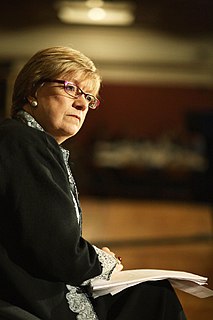A Quote by Henry Fielding
Related Quotes
When one existentially awakens from within, the relation of birth-and-death is not seen as a sequential change from the former to the latter. Rather, living as it is, is no more than dying, and at the same time there is no living separate from dying. This means that life itself is death and death itself is life. That is, we do not shift sequentially from birth to death, but undergo living-dying in each and every moment.
There is no single best kind of death. A good death is one that is "appropriate" for that person. It is a death in which the hand of the way of dying slips easily into the glove of the act itself. It is in character, ego-syntonic. It, the death, fits the person. It is a death that one might choose if it were realistically possible for one to choose one's own death.
But we are not interested in death at all: rather, we escape the facts, we are continuously escaping the facts. Death is there, and every moment we are dying. Death is not something far away, it is here and now: we are dying. But while we are dying we go on being concerned about life. This concern with life, this over concern with life, is just an escape, just a fear. Death is there, deep inside - growing.
Are not the thoughts of the dying often turned towards the practical, painful, obscure, visceral aspect, towards the "seamy side" of death which is, as it happens, the side that death actually presents to them and forces them to feel, and which far more closely resembles a crushing burden, a difficulty in breathing, a destroying thirst, than the abstract idea to which we are accustomed to give the name of Death?
Do I fear death? No, I am not afraid of being dead because there's nothing to be afraid of, I won't know it. I fear dying, of dying I feel a sense of waste about it and I fear a sordid death, where I am incapacitated or imbecilic at the end which isn't something to be afraid of, it's something to be terrified of.
Facing death calmly is praiseworthy only if one faces it alone. Death together is no longer death, even for unbelievers. The source of sorrows lies not in leaving life, but in leaving that which gives it meaning. When love is our whole life, what difference is there between living together and dying together ?
Once you teach people to say what they do not understand, it is easy enough to get them to say anything you like. v One could wish no easier death than that of Socrates, calmly discussing philosophy with his friends; one could fear nothing worse than that of Jesus, dying in torment, among the insults, the mockery, the curses of the whole nation. In the midst of these terrible sufferings, Jesus prays for his cruel murderers. Yes, if the life and death of Socrates are those of a philosopher, the life and death of Christ are those of a God.





































